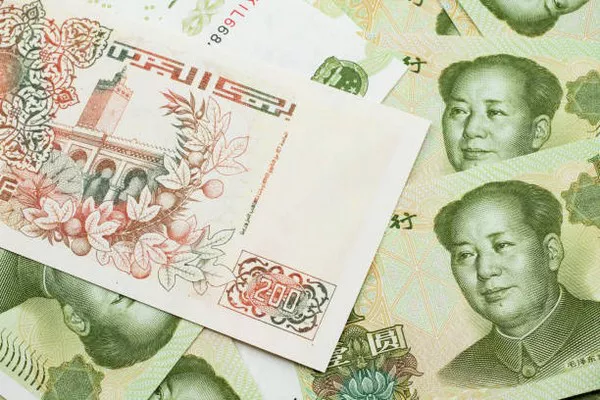Algeria, a North African nation known for its rich history and diverse culture, has been a subject of economic scrutiny in recent years. One crucial aspect of any nation’s economic health is its debt situation. In this article, we will delve into the question: Does Algeria owe money? By examining the historical context, current status, and potential implications, we aim to provide a comprehensive analysis of Algeria’s debt situation.
Historical Overview:
Algeria gained independence from French colonial rule in 1962 and embarked on a journey of nation-building. In the early years, the country managed to maintain a relatively low level of external debt. However, a significant turning point occurred in the 1980s when Algeria, like many other developing nations, faced economic challenges.
The decline in oil prices during the 1980s severely impacted Algeria’s economy, as the country heavily relies on oil and natural gas exports. To cope with the economic downturn, Algeria sought financial assistance from international lenders, resulting in an increase in external debt. Despite implementing economic reforms in subsequent years, the country continued to grapple with the effects of the oil price fluctuations.
Current Debt Situation:
As of the latest available data, Algeria’s external debt stands at a substantial figure. The debt is primarily composed of loans obtained from international financial institutions, bilateral creditors, and capital market borrowings. The breakdown of the debt reveals that a significant portion is attributed to financing infrastructure projects, economic development initiatives, and addressing budgetary gaps.
The International Monetary Fund (IMF) and the World Bank have played pivotal roles in supporting Algeria’s economic endeavors. Loans from these institutions often come with conditions aimed at promoting fiscal discipline, structural reforms, and sustainable economic development. However, the terms of these loans can vary, and their impact on Algeria’s overall debt sustainability is a subject of ongoing evaluation.
Implications of High Debt Levels:
While external borrowing can be a viable strategy for financing crucial development projects, it also raises concerns about debt sustainability. High levels of debt can pose various challenges for a nation’s economy, and Algeria is not exempt from these potential issues.
Interest Payments and Fiscal Pressure:
The servicing of debt requires the allocation of significant financial resources to interest payments. High debt levels may lead to increased fiscal pressure, limiting the government’s ability to allocate funds to other essential sectors such as healthcare, education, and social welfare.
Exchange Rate Risks:
Given Algeria’s dependence on oil and gas exports, its economy is vulnerable to fluctuations in commodity prices. High debt denominated in foreign currencies exposes the country to exchange rate risks, as currency depreciation can increase the cost of servicing debt.
Impact on Credit Rating:
Excessive debt levels can adversely affect a country’s credit rating, making it more challenging and expensive to access international capital markets. A lower credit rating may deter foreign investors and reduce the country’s ability to attract foreign direct investment.
Macroeconomic Stability:
Striking a balance between economic growth and debt sustainability is crucial for maintaining macroeconomic stability. Excessive borrowing can lead to inflationary pressures and undermine long-term economic prospects.
Government Measures and Economic Reforms:
In response to the challenges posed by high levels of external debt, the Algerian government has undertaken various measures and implemented economic reforms to enhance fiscal sustainability and economic diversification.
Diversification Efforts:
Recognizing the vulnerability of its economy to oil price fluctuations, Algeria has embarked on efforts to diversify its revenue sources. Initiatives to develop non-oil sectors such as agriculture, manufacturing, and tourism aim to reduce reliance on hydrocarbon exports.
Public Financial Management Reforms:
The government has focused on improving public financial management to ensure transparency, efficiency, and accountability in the use of public funds. Implementing sound fiscal policies is essential for mitigating the risks associated with high levels of debt.
Social Programs and Inclusive Growth:
The authorities have emphasized social programs to promote inclusive growth and address socioeconomic disparities. By investing in education, healthcare, and social infrastructure, the government aims to enhance the overall quality of life for its citizens.
See Also Is Dollar Accepted In Algeria?All You Need to Know
Conclusion:
In conclusion, the question of whether Algeria owes money is answered affirmatively, as the country carries a significant external debt burden. The historical context, current debt situation, and potential implications highlight the complex challenges facing Algeria’s economy. While external borrowing has been instrumental in financing development projects, the government must carefully navigate the balance between economic growth and debt sustainability.
The success of Algeria’s economic trajectory depends on the effectiveness of ongoing reforms, prudent fiscal management, and sustained efforts to diversify the economy. As the country strives to overcome the challenges associated with its debt situation, international cooperation, responsible borrowing, and strategic economic planning will be crucial in shaping Algeria’s economic future.


